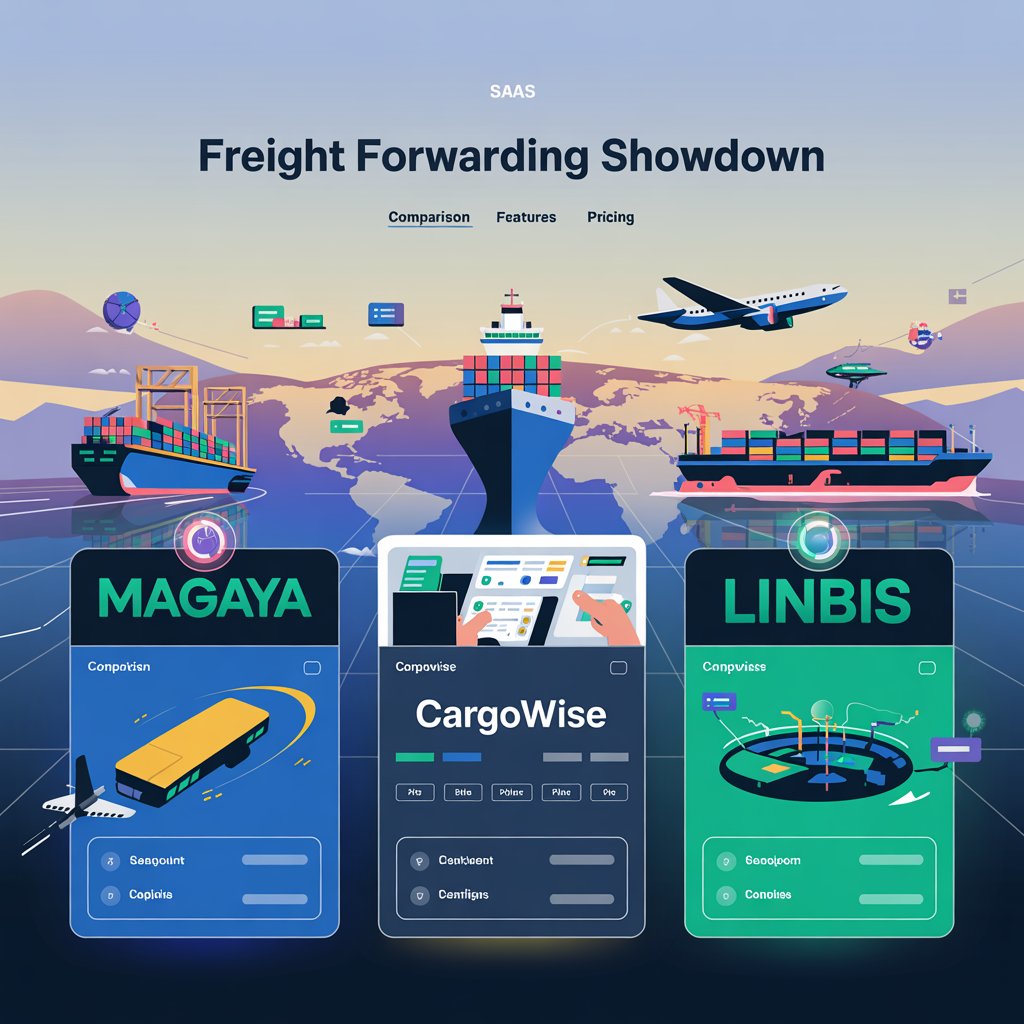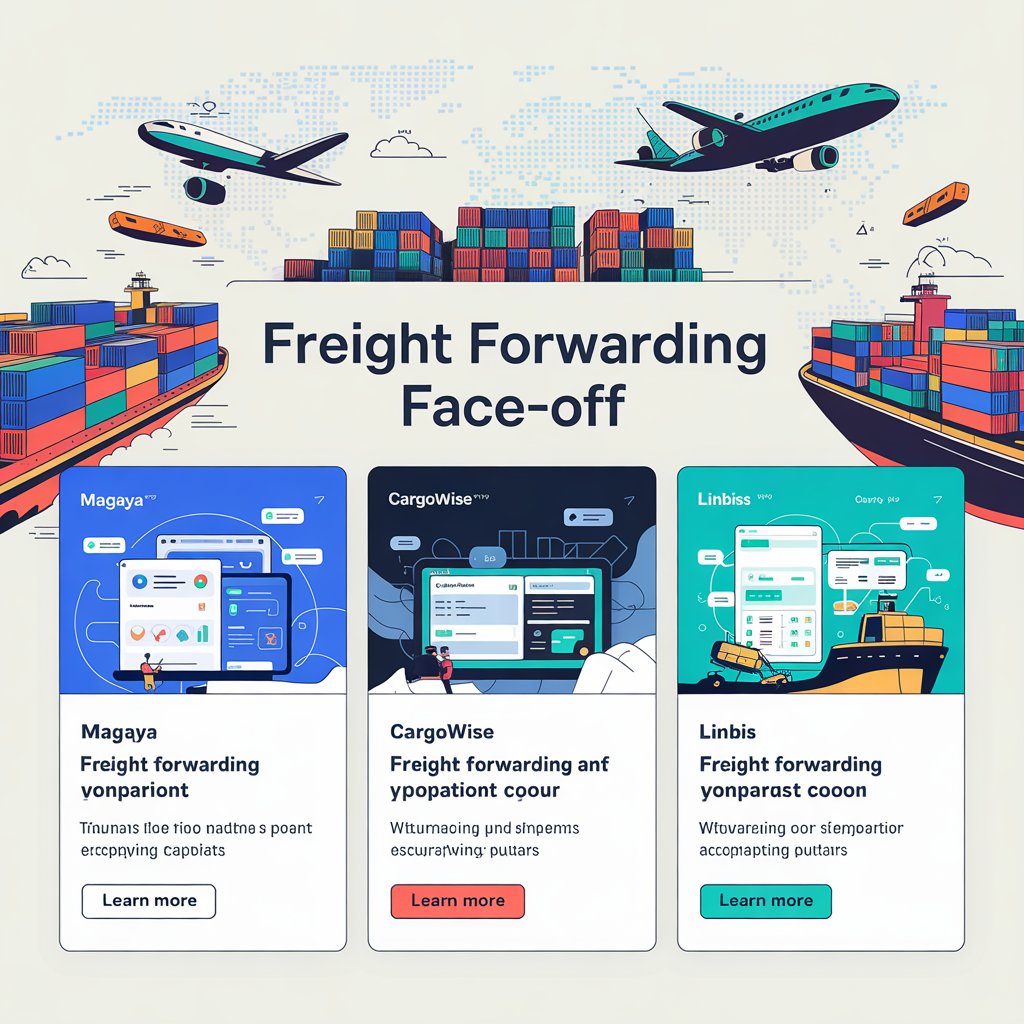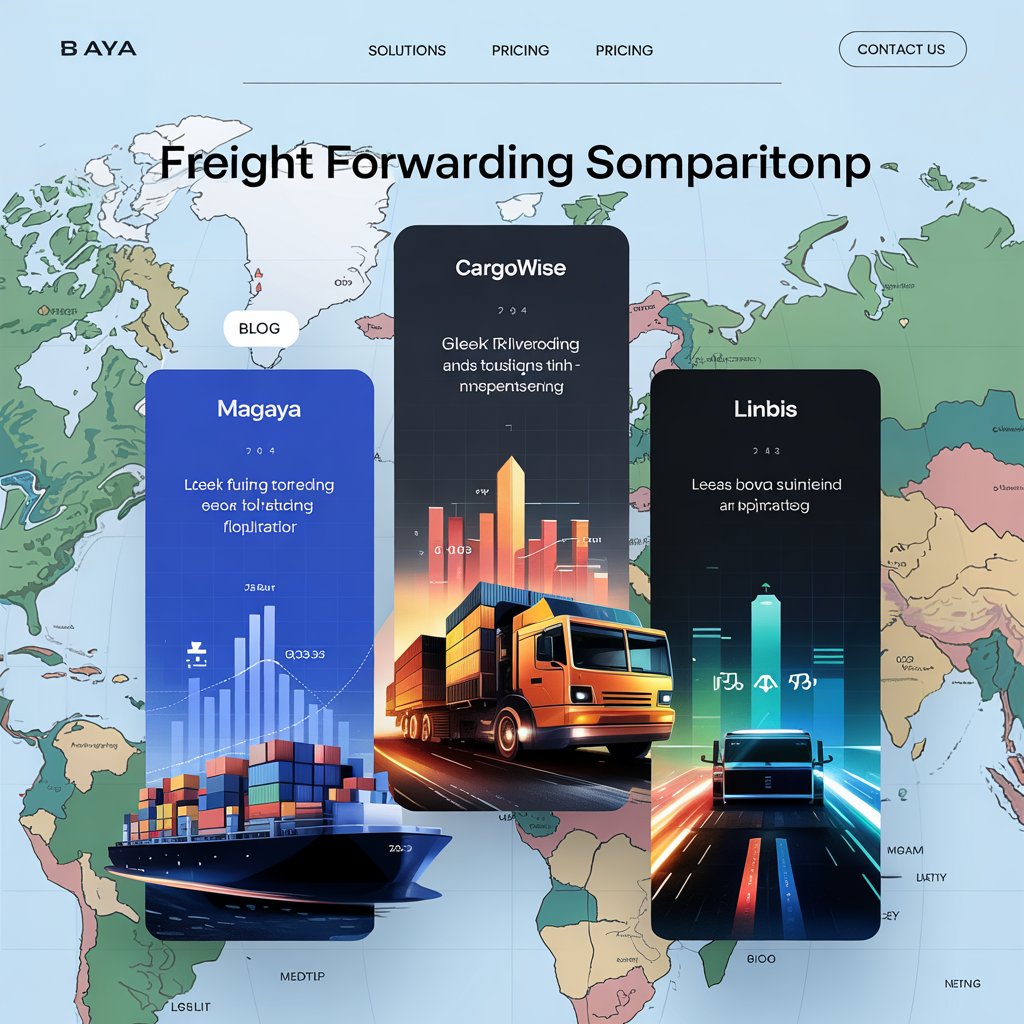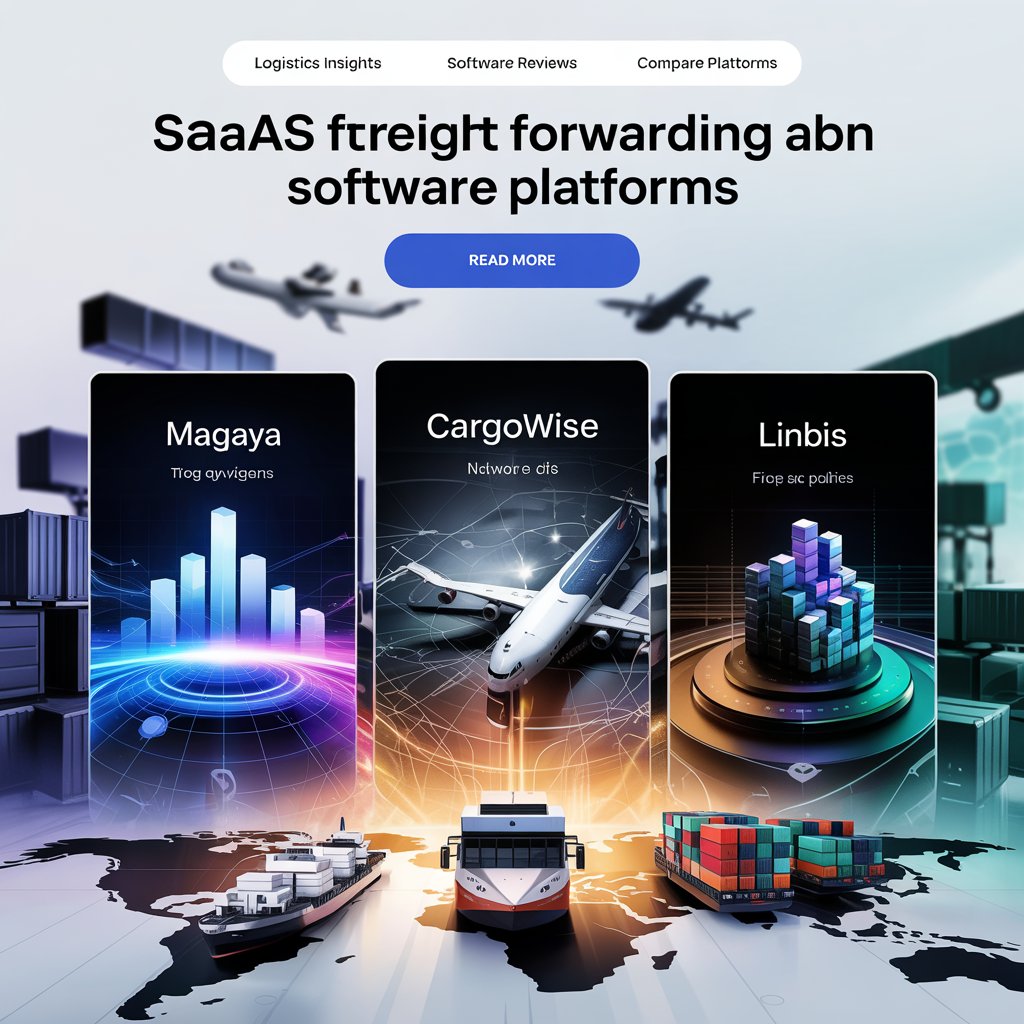Magaya vs. CargoWise vs. Linbis: Freight Software Showdown

🧭 Overview at a Glance
Feature | Magaya | CargoWise | Linbis |
Deployment | On-premise / Cloud | Cloud-based | Cloud-based |
Focus Markets | US, Latin America | Global Enterprise | Global SMBs & SMEs |
Core Features | WMS, CRM, Freight Mgmt | Global Compliance, ERP | Freight, CRM, eDocs |
Ideal For | Mid-size Freight Firms | Large Multinational 3PLs | Growing Freight Forwarders |
Ease of Use | Moderate | Complex | User-Friendly |
Price Range | $$ | $$$$ | $ |

🔍 Feature Comparison Magaya vs CargoWise vs Linbis
1. Freight Operations Management
- Magaya: Offers a comprehensive TMS and WMS with import/export automation. Strong integration with US Customs (AMS, ISF).
- CargoWise: Exceptionally powerful global logistics solution. Built-in modules for customs compliance, rate management, and accounting.
- Linbis: Focused on simplicity with tools for shipments, quotes, invoicing, and tracking. Seamless collaboration between agents and customers.
2. User Experience
- Magaya: Desktop-based interface with a learning curve. Recently improved web apps.
- CargoWise: Feature-rich but often described as overwhelming. Requires extensive training.
- Linbis: Intuitive dashboard. Designed for fast onboarding and easy daily use, even for non-tech-savvy users.
3. Integration & Customization
- Magaya: API integrations with e-commerce and accounting platforms.
- CargoWise: Deep ERP-like customization options. Integration with global partners via WiseTech Global ecosystem.
- Linbis: Open API with flexibility to connect CRMs, accounting tools, eDocs, and more.
4. Pricing
- Magaya: Mid-range pricing with modular costs depending on your needs.
- CargoWise: Premium pricing, ideal for high-volume logistics enterprises.
- Linbis: Affordable plans for small and mid-size freight forwarders. Transparent pricing structure—great ROI for growing businesses.
✅ Pros & Cons Breakdown
🔷 Magaya
Pros:
- Good WMS integration
- Latin American support
- US Customs compliance
Cons:
- Clunky desktop UI
- Pricing grows with features
🔷 CargoWise
Pros:
- End-to-end logistics suite
- Global compliance support
- Highly customizable
Cons:
- Expensive and complex
- Steep learning curve
🔷 Linbis
Pros:
- Simple UI
- Fast onboarding
- Cost-effective for SMEs
Cons:
- Less suited for massive-scale operations
- Not as well known globally (yet)

🧩 Use Case Scenarios Magaya vs CargoWise vs Linbis
- Choose Magaya if you are a freight forwarder in the Americas needing integrated warehouse and logistics functions and prefer a hybrid deployment model.
- Choose CargoWise if you’re a large-scale global logistics provider needing deep compliance support, multi-country operations, and extensive functionality.
hoose Linbis if you are a growing logistics company or startup that needs an affordable, cloud-first solution with robust freight tools and minimal setup complexity.

🎯 Final Thoughts: Which Freight Software Wins?
The truth is, there is no one-size-fits-all answer. It depends on your business size, budget, and global needs.
- CargoWise wins on enterprise power and global scale.
- Magaya stands out for regional operations and WMS integration.
- Linbis is the underdog turned champion for SMBs looking for value, flexibility, and modern cloud tools.
If you’re scaling your freight forwarding operations and want a clean, collaborative platform without the hassle or cost of bloated systems—Linbis is the smart choice.
